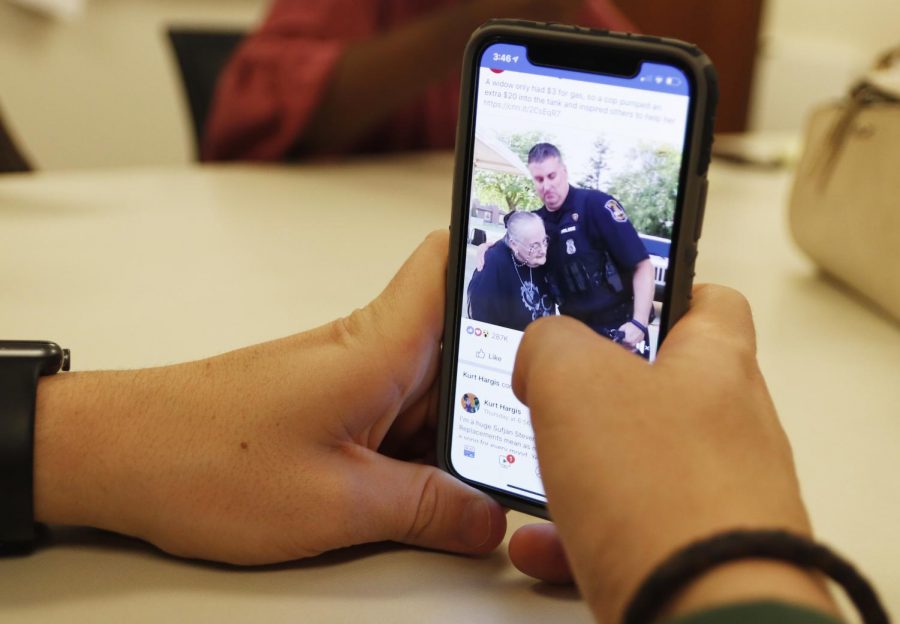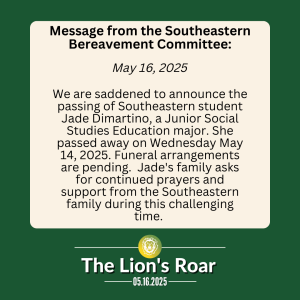The scary side of social media
Constant use of social media can carry negative effects.
October 31, 2018
Though social media offers a convenient form of communication and networking, negative effects can accompany prolonged use.
According to Director of Graduate Studies and Institutional Effectiveness John Boulahanis, social media is psychologically addictive, and like other addictions, withdrawal brings negative effects.
“A 2017 study published in the Public Library of Science studied the effects of internet addiction on a group of individuals who stay online for extended periods of time,” said Boulahanis. “The findings revealed that people who stay online for extended periods of time go through physiological changes when they get offline. These changes include increased heart rate, blood pressure and anxiety, a pattern very similar to drug withdrawal.”
Boulahanis shared how seeing crime information in media can affect individuals.
Boulahanis said, “Various media and crime studies have also indicated that individuals who receive most of their crime-related information from the media, including social media, tend to suffer from higher levels of fear of crime and are more likely to engage in preventative behavior that may impact their quality of life.”
Psychology Instructor Christina Parker compared the initial stage of disconnecting from social media to later stages.
“For those who have taken a break from social media platforms, many report feeling as if they are missing out on important updates from their friends or invitations to upcoming events,” said Parker. “For those who have moved past these anxieties and continued to live a minimal social media life, many report feeling as if they have more time for face-to-face meaningful relationships and reduced anxiety.”










